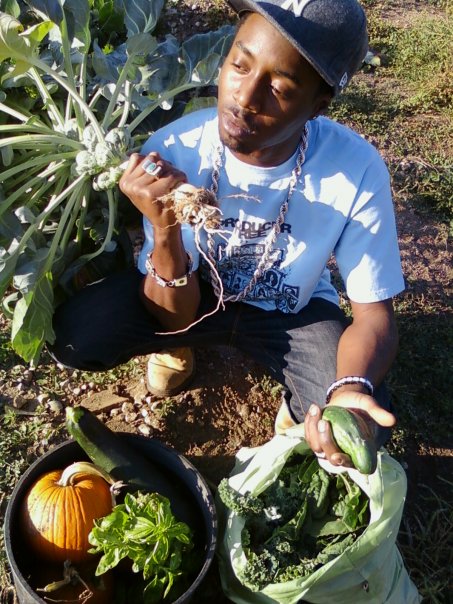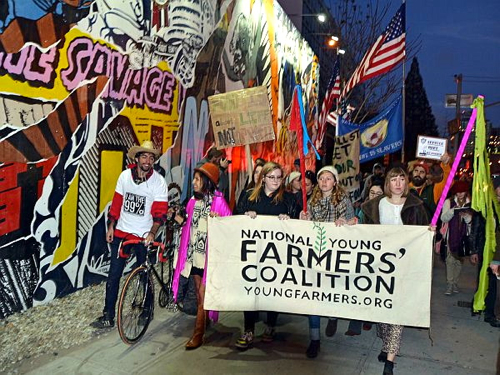
Grist is proud to present the Change Gang — profiles of people who are leading change on the ground toward a more sustainable society and a greener planet. Some we’ve written about before; some are new to our pages. Some you’ll have heard of; most you probably won’t. Know someone we should add to the Change Gang? Tell us why.
Three blocks from his old high school in the historic Five Points district of Denver, Colo., recalls Ietef Vita, stands a youth penitentiary where friends Vita hasn’t seen since middle school are still locked up.
Gentrification is now starting to soften the hard edges of Five Points, but when he was growing up, says Vita, the neighborhood was “saturated by gang violence and police brutality.”
“And there wasn’t a community garden anywhere,” he laments.
That’s changed now, in part due to Vita’s relentlessly positive food justice hustling and his determination to claim the idiom of hip-hop for green, sustainable, social enlightenment. Vita’s MC handle — DJ Cavem — is an acronym for “Communicating Awareness Victoriously Educating the Masses.” Vita has even redefined hip-hop itself — in his gospel, the words stand for “higher inner peace, helping other people.”
So say goodbye to the old school OG — “original gangster” — and hello to the new “organic gardener.” In Five Points, Vita says, it’s time to tune out the hip-hop glorification of sex and alcohol and violence, and tune in to, no kidding, the righteousness of wheatgrass juice.
A vegan since he was a high school sophomore, Vita attributes his musical quest to improve his community’s access to organic collard greens to a family background rich in music, poetry, and social justice concerns. His grandfather was a Black Panther; his mother took him to poetry readings as a child. The revolution he seeks is measured in green jobs and “vegetable gardens instead of lawns.” It’s a family affair: His mother, the well-known Denver activist Ashara Ekundayo, helped found Denver’s GrowHaus — a nonprofit dedicated to improving access to healthy food.
Vita takes his message to local schools, delivers it through an annual festival he helped organize (the Brown Suga Youthfest), and raps it on a string of albums — the next of which, “Produce Section,” will be released, appropriately enough, on Earth Day.
One of his ultimate goals: When those long-lost friends of his get out of jail or the youth penitentiary, there will something waiting for them.
“If they can get out knowing that they can get a job, that they can create for themselves something around photovoltaic design or geothermal installation, that will really give them more perspective,” says Vita. “Oh, I got a felony, but I can still get a green job. OK cool, let’s do it.”
“That’s what I’m bringing to the table. I let people know that through hip-hop, we can heal our minds and our bodies and our souls — especially our bodies — if we are watching what we eat, watching what we say and how we think. At the same time there is no justice without peace, and to have peace of mind, it’s good to have a piece of food in that belly. You know what I’m saying? People get really aggravated and they do crazy stuff when they are hungry.”
I asked Vita if he ever got pushback from the real OGs, if there were people in his community who rejected his wheatgrass proselytization as uncool, or insufficiently street. He noted that while he had grown up in a Crips neighborhood, one of his gardens was in a Bloods ‘hood — a potentially volatile situation.
“But what we do,” said Vita, “is we have collard greens that we grow there and give away. And we have no problems. Everybody loves collard greens! And when you talk about food, people have that same common cause, and common ground. Nobody wants their food poisoned. Everybody wants to have access to healthy organic food.”




